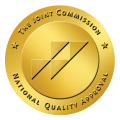What is a Substance Use Disorder?
The branch of US Department of Health & Human Services known as SAMHSA (Substance Abuse and Mental Health Services) states that, “Mental health and substance use disorders affect people from all walks of life and all age groups. These illnesses are common, recurrent, and often serious, but they are treatable and many people do recover. Mental disorders involve changes in thinking, mood, and/or behavior. These disorders can affect how we relate to others and make choices. Reaching a level that can be formally diagnosed often depends on a reduction in a person’s ability to function as a result of the disorder”. Substance use disorders can cause significant impairment to a person such as:
- Health issues
- Inability to cease drug/alcohol use
- Disability
- Failure to meet obligations at work, school, or family-life
- Criminal acts in order to support a growing habit
It is possible that a person can suffer from a substance use disorder and not even know it. Usually, it is those closest to us that see the telltale signs of addiction before we even notice. You may want to read our recent blog to see if you may have a substance use disorder.
The Stigma of Addiction
Not too long ago, a person who was addicted to drugs or alcohol was looked down upon. If a friend or family member found out that you were a heroin addict you would be labelled a “junkie” or “loser”. Many families were ashamed of a loved one that had a substance use disorder. Today in Massachusetts, where so many lives have been touched by the disease of addiction in one way or another, there seems to be a more compassionate stance. However, there is still a stigma surrounding those struggling with substance abuse or mental health problems. While the general and near unanimous consensus in the medical profession field is that addiction is a disease of the brain that requires treatment, a large part of our society rejects this notion and believes that addiction is a choice. The stigma casts such a shadow that it fills the addicted person and their families with shame. The fact of the matter is that while substance abuse is a serious widespread issue in the world today, the addicted population only makes up about ten percent of the populace.
Due to this fact, there is a stigma surrounding the disease of addiction as many people do not know what it is like to be in the grips of addiction or have a loved one struggle through relapses and lengths of sobriety. Addiction has such a stigma due to the large societal effects that it brings. The total cost of addiction in the United States alone, has been estimated to exceed one trillion dollars. This figure comes from the cost of the criminal justice system, rehabilitation treatment, medical expenses, emergency services, Medicaid costs to taxpayers, as well as the cost associated with industry (loss of work, theft, sick days, loss of productive work hours, etc.). In fact, the National Institute on Drug Abuse (NIDA) has estimated the cost at the very least to be $740 billion. These negative impacts on society have cast the substance abuser in a negative light and created a stigma, where the addict is a drain upon society. In truth, those struggling with addiction are suffering from a disease and need help. Recovery from a substance use disorder is possible with ongoing treatment.
The Stigma of Addiction on College Campuses in Massachusetts
Many college campuses in Massachusetts offer some form of educational service for drug and alcohol abuse. Some campuses even have recovery support organizations for their students. However, when we think of college life these are not the first things that come to mind. We think of bookstores, classes, facilities, dorm-living and parties. It is a well-known fact that most substance abuse begins in the mid-teenage years. For those who have only recently begun to experiment with drugs and alcohol in their teens, they may not be aware that their use of these substances has gotten out of hand. After all, it is not uncommon for those in college to attend parties and not viewed as out of the norm for a college student to drink at a party. For many who grew up with the D.A.R.E. program, drug and excessive alcohol use and their effects were viewed in such a negatively light, that it would be easy to diminish one’s own experience with drugs and alcohol so as not to identify as an addict. Unfortunately, this only leads to allowing the substance abuse to continue to evolve over time. It is for this reason that many college campuses have programs and organizations to shed light on substance abuse. These collegiate programs and organizations have several aims such as:
- Allowing for students questioning their substance use to talk with non-judgmental people, many of whom have had their own experience with substance abuse.
- To help students find recovery resources and support groups.
- To Provide educational services on drug and alcohol abuse.
- To help students make healthy decisions regarding alcohol and drug use.
- Connect those seeking recovery with like-minded people.
These resources that college campuses offer to students can be helpful for those questioning their substance use and seeking recovery. However, the stigma surrounding drug and alcohol abuse can keep somebody from seeking out the assistance they may require from these services. The shame of having an addiction can keep students in these colleges and universities from reaching out. The students may find themselves struggling with their own thoughts such as:
- “My friends can have a few drinks and stop, why not me? Why am I different?”
- “I want to be just like everybody else.”
- “I can’t be an alcoholic, I’m too young.”
- “I’m just having fun.”
- “I’m too smart to get addicted to drugs. I can stop if I want to.”
It is easy to diminish or minimize ones using. Yet it is so important to seek help as early as possible when dealing with substance abuse. Addiction can cost you the trust of friends and family. It can take everything from you if it is not brought into the light. That is why it is important to break through the stigma of the disease of addiction and not be just another statistic. The CDC estimates that the period between June 2019 and May 2020, that 81, 230 people died of a drug overdose. The CDC also reports that 93,000 Americans die from alcohol-related causes each year. Part of the stigma surrounding addiction is “once an addict, always an addict”. This does not need to be the case. With treatment and support, you can achieve full recovery from addiction.
Signs You May Have a Substance Use Disorder
There may be several signs that could indicate you or a loved one may have a substance use disorder. These signs could be physical symptoms or behavioral changes. These signs include but are not limited to:
Physical Symptoms of Substance Abuse
- Bloodshot eyes
- Dilated or constricted pupils
- Sudden weight changes
- Lack of sleep or sleeping too much
Behavioral Symptoms of Substance Abuse
- Increase in aggression or irritability
- Sudden change in personality
- Depression
- Sudden change in social life
- Sudden change in habits
- Lying
- Loss of interest in things once found pleasurable
- Problems with work or school
- Constantly wearing long sleeves (to hide needle injection sites)
If you or your loved one is experiencing these signs and symptoms, it could be indicative of an alcohol or drug addiction. Help is available. Contact Aftermath Addiction Treatment Center, located in Wakefield, Massachusetts, today.









